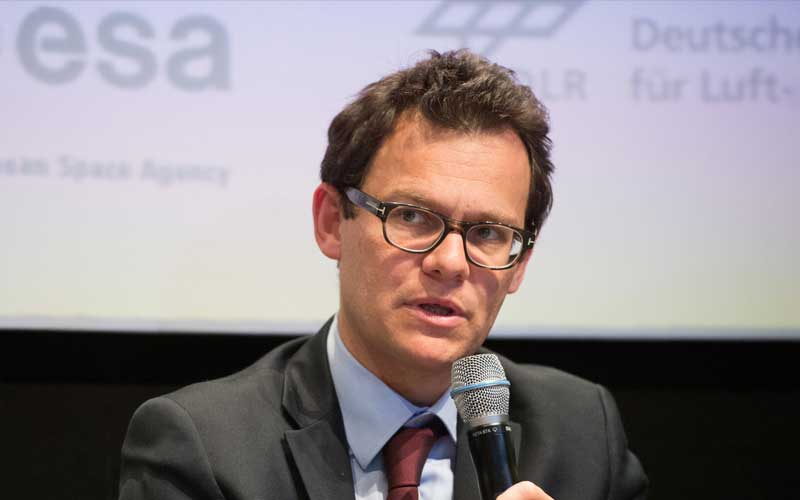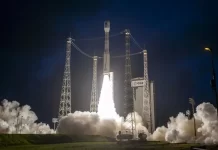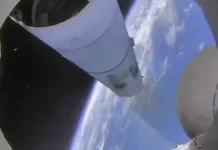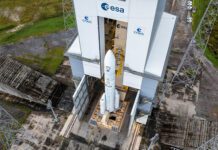
Arianespace CEO Stéphane Israël has suggested that focusing on competition may not be the best approach in developing an Ariane 6 successor.
In an interview with French publication Les Echos, Israël was asked about the future of the Europe launch market with the interviewer noting that “it seems that Europe is less united behind Ariane.” In response, the Arianespace chief explained that while it was true that ESA and its member states had moved to foster more competition with the introduction of its European Launcher Challenge, it had also committed to the long-term stability of Ariane 6 and Vega C operations.
When it comes to the next European heavy rocket, Israël questioned the value of promoting competition when such an endeavour required the pooled resources of the continent.
“Too much competition might have its limits because Europe’s space budget is five times smaller than the U.S.’s, and I doubt Europe can afford two heavy rockets,” said Israël. “At some point, there will need to be industrial and political alignment for the next heavy launcher, which will replace Ariane 6 and be reusable.”
This sentiment seems to be one that those with an interest in ArianeGroup are pushing, as it was repeated in the same week by Antoine Bouvier, special advisor to Airbus CEO Guillaume Faury. Airbus holds a 50% stake in ArianeGroup, with Safran holding the other 50%.
“Whether we like it or not, there is no room for two heavy launchers in Europe. That is obvious,” said Bouvier during the 7th edition of the Toulouse Space Forum. “On the other hand, there is room in Europe for competition on micro and mini-launchers.”
Bouvier went on to explain that if Europe entertained “multiple temptations not to see this obvious fact,” the consequences would be dire.
“This competition will play into the hands of other global players,” said Bouvier. “This intra-European competition could end in blood and tears.”
When asked how Europe could compete with the likes of SpaceX, Israël clarified that we should “stop just comparing SpaceX and Elon Musk with Arianespace.” His reasoning for this was that SpaceX is not just a launch company but one that controls a broader value chain that includes satellite manufacturing and operation through Starlink. “He competes against the entire space industry on his own,” said Israël. In order to compete with SpaceX, he explained “the entire European space sector must be united and ambitious.”
Israël identified Europe’s planned Iris² satellite constellation as a key project to ensure future competitiveness. “Our hopes rest on the Iris² constellation promoted by the European Commission,” he said.
Bouvier shared the view that Iris² will be important for Europe to compete with SpaceX. “We can clearly see that Europe’s response to SpaceX and Starlink is IRIS²,” he said.




